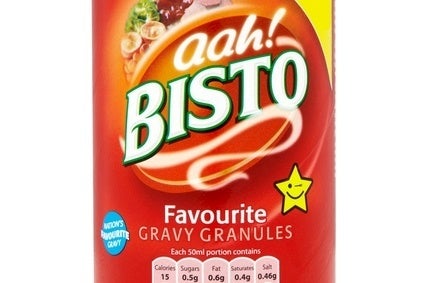The City has welcomed Premier Foods’ moves to spin off parts of its businesses into joint ventures but it is still the performance of the UK group’s core brands that moves its shares – and that concerns investors.
This morning (18 June), Premier announced a second deal in as matter of months that will see a chunk of the company put into a stand-alone unit.
Following the transfer of Premier’s bread arm into a venture with US private-equity firm Gores Group, its powdered beverage and desserts assets are set to be put into a stand-alone business run with privately-owned UK firm Specialty Powders.
The move will see the venture take on Premier’s loss-making private-label and business-to-business powdered units, including its Knighton site in Staffordshire, plus assets owned by Specialty Foods. Production lines will move from Knighton to another Premier site in Kent, a move it said would improve efficiency within its wider grocery business. Premier, meanwhile, will retain all of its other brands manufactured at the Knighton site, including Bird’s and Angel Delight.
Premier, as with its bread venture, will take a 49% stake in the new powdered entity, to be called Knighton Foods, with its partner owning the rest.
City analysts backed the spin off. “In what we see as a clever move, Premier is effectively exiting its least utilised factory together with GBP16m (US$27.1m) of loss-making own label sales, and boosting efficiencies at Ashford, which we estimate could take out another GBP5-8m of costs,” Panmure Gordon analysts Graham Jones and Damian McNeela wrote in a note to clients today.

US Tariffs are shifting - will you react or anticipate?
Don’t let policy changes catch you off guard. Stay proactive with real-time data and expert analysis.
By GlobalDataAlongside the announcement came news Premier had completed another piece of restructuring – consolidating the number of grocery logistics sites from three to two regional centres.
However, Premier’s shares took a pummelling today. An update from the company on trading overshadowed its business engineering. It revealed 2014 sales of its “power brands” – including Mr Kipling and Bisto – would miss its forecast after a fall in the second quarter of the year.
Premier, which also saw sales of the brands fall in the first quarter of 2014, blamed “subdued grocery markets”.
At the time of writing, Premier’s shares were down more than 8% at 52.7p. Premier’s stock has hardly been a star performer in recent years amid the well-documented challenges at the business but in late October it stood at 183.4p. The shares fell back towards the end of 2013 but regained some ground in the early part of this year, reaching a 2014 peak of 160.75p in March.
Since then, however, the stock has dropped, hit by news of falling sales in the first quarter of the year and, today, an admission sales dropped in again between in April and June and would miss forecasts for the year.
The UK grocery market is hardly an easy place to do business at present, with volumes still in the doldrums amid seemingly entrenched changes to consumer habits including less household waste and more top-up shopping, over weekly trips.
That said, Premier’s focus on fewer, core brands – first devised in 2011 by former CEO Robert Schofield but built upon by successors Michael Clarke and Gavin Darby through a series of disposals of other brands – was meant to better position the company for growth. Sales of Premier’s power brands did rise 2% in 2013 but have suffered again in early 2014.
“The weak trading momentum is a disappointment and a worry,” Shore Capital analyst Darren Shirley said today. “Sales are weak in flavours, seasoning and easy eating, so gravies and stocks in particular. Management is not issuing new guidance for power brand sales for FY2014, though we anticipate broadly flat sales given Q2 momentum and the probable entry rate in Q3.”
At Panmure Gordon, Jones and McNeela said the weather in the first half of the year had been “unhelpfully warm” to Premier’s largely ambient brands and noted the company’s innovation programme was weighted to the second half of the year.
However, they suggested if Premier’s performance does not improve the company could become a takeover target. “A Q2 decline in power brand sales is disappointing. The extra cost savings means profit forecasts still look fine, but a re-rating of the stock needs better brand management, which we expect will come. If it doesn’t we wonder whether, with the hard work done, Premier starts to look ripe for a take-out.” The analysts have lowered their price target on Premier’s shares.
How Premier fares during the rest of the year will in large part depend on the NPD in the pipeline. It remains uncertain whether that will be enough to boost sales.





